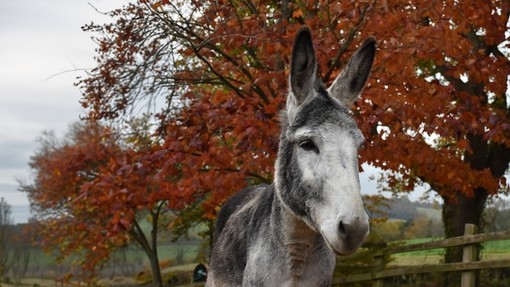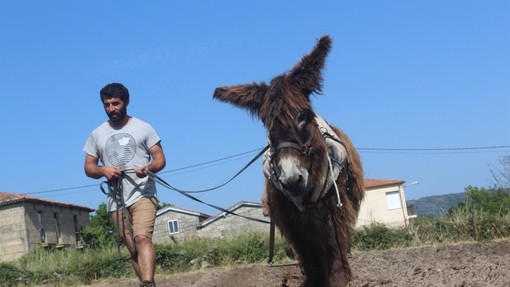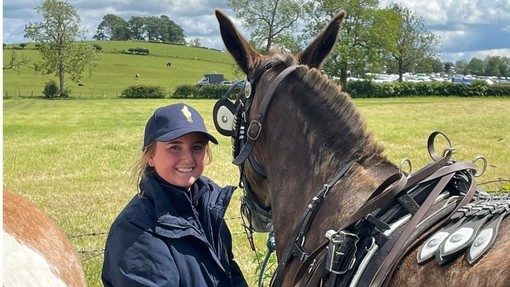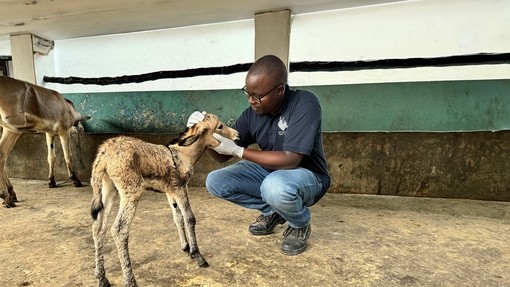
Being prepared for bonfire night
Bonfire Night is just around the corner (November 5) and the skies around the UK are expected to once again be lit up with a dizzying array of fireworks. But with fireworks come a lot of noise, which can negatively affect many domestic pets and wildlife who are unfamiliar with the pyrotechnics.
We’ve enlisted the expertise of Ben Hart, our Senior Lead in Behaviour and Human Behaviour Change, to share some steps and routines that owners can take to keep their donkeys calm on the night.
It’s all in the prep
Preparation is the key to helping your donkeys cope with fireworks. Easy steps you can take include ensuring fencing is safe and secure and that there is nothing your donkeys can catch themselves on if they run about. Assess your donkeys’ reactions to other loud noises, such as popping balloons or letting off a party popper at a distance.
Another easy step to help your donkeys remain comfortable is to keep them in a familiar environment with their companions and monitor them closely throughout any fireworks.
If you know your donkeys will be severely distressed by fireworks, discuss with your vet options for calmers such as Zylkene, sedation or psychopharmaceuticals with your vet.
Did you know?
Donkeys, just like dogs and cats, have remarkable hearing. However, donkeys hear in different ranges from humans and to each other. Donkeys hear up to 33,000Hz, compared to humans’ top range of 2300Hz. Dogs hear higher than donkeys, up to 45,000Hz, and cats can hear the highest frequencies of 64,000Hz.
In short, dogs and cats hear higher-pitched sounds that donkeys can’t hear, while donkeys are better at detecting lower-pitched sounds. Fireworks tend to be at higher decibels but lower frequencies. Donkeys are thought to be good at detecting sound over long distances, so loud noises, such as fireworks, will be heard by donkeys many miles away.
Creating a routine
Invest time in routine
Be prepared to have a routine for at least seven days on either side of events that fireworks might be used – this avoids being unprepared for early or late celebrations.
Bring your donkeys into an enclosed yard or stable before it gets dark. Provide enrichment activities based on food two or three times during the evening to make coming inside a more positive experience and act as a distraction. Groom the donkeys and give them a scratch to help lower their heart rates.
TOP TIP: Turning on a radio to a music station that plays classical or heavy metal is a great way to calm your donkeys down, as they naturally have sections of quieter sounds and louder noises. You can also gradually raise the volume to help create background noise.
Signs that a donkey is distressed by fireworks:
- Freezing with stiff body language
- Showing the whites of their eyes
- Tense muzzle and nostrils
- Trembling or shaking
- Sudden movements, pacing or running in panic around their environment
Location, location, location
Are donkeys safer inside their stables than remaining outside when fireworks go off? Well, it’s not only loud noises that donkeys may be fearful of. For some donkeys, the flashing lights cause confusion and distress. Some donkeys are more distressed if they are shut in a stable and they can’t see or pinpoint where the loud sounds are coming from.
Therefore, it is important to know your donkeys. Donkeys can be kept in either their stable or a stable with access to an enclosed yard or fields during fireworks, depending on their usual routine and their level of nervousness. If they are extremely nervous, stabling them might be safer to prevent them from bolting and injuring themselves.
If your donkeys are nervous and react to fireworks, they may be a potential risk to your safety, so think carefully before going in with a panicking donkey. Consider wearing a riding hat and gloves as a precaution.
TOP TIP: If fireworks have been let off close to the donkeys’ paddock, ensure there is no firework debris in the field that they could try to eat or injure themselves on.
Find out more about understanding donkey behaviour
Read our resourceShare this page
Tags
- Blog





